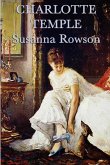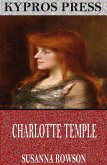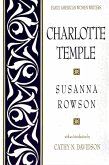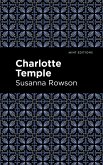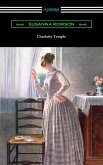Charlotte Temple, a seminal work by Mrs. Rowson, stands as a poignant exploration of the themes of love, betrayal, and the plight of women in the late 18th century. Written in the epistolary style, the novel captures the emotional turmoil of its titular character, Charlotte, a young Englishwoman who follows her heart to an ultimately disastrous end in America. Rowson intricately weaves moral lessons and societal critiques into her narrative, revealing the harsh realities facing women who defy societal norms. The novel'Äôs complex characters and vivid settings provide a deeply engaging and reflective experience for readers, resonating with contemporary discussions surrounding gender and autonomy. Mrs. Rowson, a trailblazing author, playwright, and educator in her own right, was born into a tumultuous era of shifting values. Her experiences as an immigrant in America, coupled with her keen observation of societal structures, profoundly influenced her writing. By depicting the vulnerabilities and struggles of women like Charlotte, Rowson sought not only to entertain but also to illuminate the consequences of societal expectations and moral failings. Her own life experiences as a woman navigating these challenges are woven intricately into her narrative. Charlotte Temple is highly recommended for readers interested in early American literature and feminist themes. It serves as a crucial commentary on the limitations placed on women in the past, while also invoking empathy for the character'Äôs plight. Engaging and thought-provoking, this work is essential for any reader seeking insight into the early foundations of the American novel and the broader implications of gender dynamics.
Dieser Download kann aus rechtlichen Gründen nur mit Rechnungsadresse in A, B, BG, CY, CZ, D, DK, EW, E, FIN, F, GR, H, IRL, I, LT, L, LR, M, NL, PL, P, R, S, SLO, SK ausgeliefert werden.




